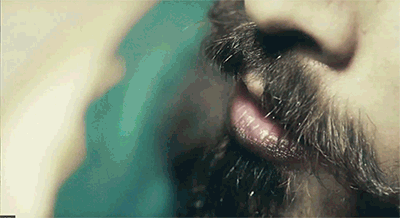NEWS - "OITNB" su Mya (Mediaset Premium) da giugno: dopo "House of Cards" su Sky (Atlantic), Netflix semina i suoi gioielli sulle reti (ipoteticamente) concorrenti in vista del suo (lontano?) approdo
La
serie-fenomeno “Orange Is The New Black”
di Netflix, ambientata all’interno di un carcere femminile, andrà in onda in
anteprima assoluta su Mya dal 12 giugno, ogni giovedì in
prima serata. Si
tratta di uno dei titoli seriali di cui
la stampa americana si è occupata maggiormente nell’ultima stagione – sia
per i temi affrontati che per l’alta qualità di messa in scena – non da ultima
l’ultima copertina del prestigioso “Entertainment Weekly” in edicola che lo
definisce letteralmente “strangest, kinkiest and most surprising hit
on tv”. La
serie racconta le vicende di Piper Chapman, una donna del Connecticut che viene
condannata a scontare 15 mesi nel carcere federale di Litchfield per aver
trasportato una valigia piena di soldi per conto di una trafficante di droga
internazionale un tempo sua amante. Guarda caso quest’ultima finisce nello
stesso carcere di Piper…Girata
col taglio dramedy (a metà strada tra la black comedy e il drama), tratta dal
libro di memorie omonimo di Piper Kerman, “OITNB”
è stata ideata da Jenji Kohan, già
ideatrice della serie cult – assai chiaccherata anch’essa – “Weeds”, su una
vedova che alla morte del marito si mette a spacciare cannabis per mantenere i
due figli. “La serie indaga sull’auto-distruzione e sulla brutalità che si annida anche
nell’animo femminile – ha dichiarato l’ideatrice Kohan – la prigione è solo un megafono di questo
aspetto”. In America, il debutto del serial è stato più visto di un altro titolo Netflix
come “House of Cards”. Tra i
riconoscimenti si contano un People’s Choice Award e un Peabody Award. Jodie Foster dirige il terzo episodio
della serie che è già stata rinnovata per la seconda stagione. Le due
interpreti principali, la bionda Taylor
Schilling e la bruna Laura Prepon,
sono diventate in patria icone di stile e idoli della comunità lesbo. La serie
vanta per la prima volta un transgender negli interpreti principali. Il tema
musicale, “You’ve got Time”, è eseguito da Regina Spektor.venerdì 25 aprile 2014
Etichette:
House of Cards,
Jenji Kohan,
Jodie Foster,
Laura Prepon,
lesbo,
network,
NEWS,
omosessualità,
Orange is the new Black,
Regina Spektor,
Taylor Schilling,
Weeds
giovedì 24 aprile 2014
#HouseOfCards su @SkyAtlanticHD, #OITNB su @PremiumMya: se @netflix aspetta ancora a sbarcare in #Italia trasmetterà solo repliche...
— Leo Damerini (@LeoDamerini) 24 Aprile 2014
NEWS - Netflix, se mai arriverà in Italia, sarà dopo il resto d'Europa (anche la Polonia prima di noi!)
Articolo di Maddalena Camera per ‘Il Giornale'
Netflix sale (+6,7%) a Wall Street dopo i conti trimestrali. La società, partita nel 1997 come servizio di noleggio di film in dvd per posta, dal 2008 ha cambiato pelle e ora è un vero e proprio network televisivo via Internet di successo: negli ultimi tre mesi ha registrato utili per 53,1 milioni di dollari con ricavi a 1,27 miliardi (+24%). Il grande colpo del fondatore Reed Hastings è stato l'acquisto, nel 2012, dei diritti della fortunata serie «House of cards».
L'intrigo a sfondo politico interpretato da Kevin Spacey era finito a Netflix grazie a un'offerta per i diritti, superiore rispetto ai canali via cavo Amc e Hbo, di cui ora è il principale concorrente. E per dimostrare la stretta connessione che ormai sussiste tra pay tv e tv via Internet, in Italia, dove il servizio di Netflix non è ancora disponibile, è SkyAtlantic a trasmettere «House of Cards».
L'intreccio tra la banda ultralarga e la pay tv sembra sempre più stretto. Telecom e Sky venderanno contenuti e abbonamenti a banda ultralarga. E presto potrebbe arrivare un'altro accordo tra la stessa Netflix e Vodafone.
Netflix comunque è già in Europa. Nel 2012 è sbarcata in Gran Bretagna, mentre l'anno scorso è toccato a Olanda e Scandinavia. Presto si dovrebbero aggiungere Francia e Germania, ma non l'Italia, che pare essere meno interessante persino rispetto a Spagna e Polonia, poiché la penetrazione Internet nelle case è del 55% contro la media Ue del 72%. Inoltre, le prestazioni della rete sono mediamente inferiori certamente anche a causa della bassa diffusione della fibra.
Telecom, infatti, fatica a investire nella rete di nuova generazione perché, al momento, le richieste di collegamento a banda ultralarga latitano. La speranza è che l'accordo con Sky riesca a dare impulso alla domanda. Negli Usa il successo di Netflix è dovuto anche al fatto che l'abbonamento alla tv via cavo (che comprende Internet) costa circa 100 dollari al mese, mentre il costo di Netflix (più Internet) ammonta a circa 60 dollari. Ossia, come il collegamento alla sola banda ultralarga in Italia (circa 50 euro). Certo Netflix pratica tariffe convenienti: circa 8 euro al mese che, probabilmente, saliranno a 10. L'ad e fondatore Hasting ha, infatti, prospettato una «lieve» modifica del prezzo. In Italia Netflix ha fatto proseliti. Mediaset ha lanciato, un paio di mesi fa, un servizio simile (Infinity) a 9 euro al mese. E ieri, proprio in concomitanza dei conti positivi di Netflix, anche Mediaset ha messo a segno una crescita del 3,3% in Borsa. Certo è che, negli Usa, i colossi locali della tv via cavo non stanno a guardare. Ieri Netflix ha chiesto alle autorità Usa di bloccare la fusione da 45 miliardi di dollari tra Comcast di Time Warner Cable. Secondo l'ad Hastings, infatti, l'operazione concederebbe al nuovo colosso il controllo di oltre il 60% del mercato della tv online ad alta velocità. Una minaccia per Netflix che sta ancora lottando duramente per crescere.
Articolo di Maddalena Camera per ‘Il Giornale'
Netflix sale (+6,7%) a Wall Street dopo i conti trimestrali. La società, partita nel 1997 come servizio di noleggio di film in dvd per posta, dal 2008 ha cambiato pelle e ora è un vero e proprio network televisivo via Internet di successo: negli ultimi tre mesi ha registrato utili per 53,1 milioni di dollari con ricavi a 1,27 miliardi (+24%). Il grande colpo del fondatore Reed Hastings è stato l'acquisto, nel 2012, dei diritti della fortunata serie «House of cards».
L'intrigo a sfondo politico interpretato da Kevin Spacey era finito a Netflix grazie a un'offerta per i diritti, superiore rispetto ai canali via cavo Amc e Hbo, di cui ora è il principale concorrente. E per dimostrare la stretta connessione che ormai sussiste tra pay tv e tv via Internet, in Italia, dove il servizio di Netflix non è ancora disponibile, è SkyAtlantic a trasmettere «House of Cards».
L'intreccio tra la banda ultralarga e la pay tv sembra sempre più stretto. Telecom e Sky venderanno contenuti e abbonamenti a banda ultralarga. E presto potrebbe arrivare un'altro accordo tra la stessa Netflix e Vodafone.
Netflix comunque è già in Europa. Nel 2012 è sbarcata in Gran Bretagna, mentre l'anno scorso è toccato a Olanda e Scandinavia. Presto si dovrebbero aggiungere Francia e Germania, ma non l'Italia, che pare essere meno interessante persino rispetto a Spagna e Polonia, poiché la penetrazione Internet nelle case è del 55% contro la media Ue del 72%. Inoltre, le prestazioni della rete sono mediamente inferiori certamente anche a causa della bassa diffusione della fibra.
Telecom, infatti, fatica a investire nella rete di nuova generazione perché, al momento, le richieste di collegamento a banda ultralarga latitano. La speranza è che l'accordo con Sky riesca a dare impulso alla domanda. Negli Usa il successo di Netflix è dovuto anche al fatto che l'abbonamento alla tv via cavo (che comprende Internet) costa circa 100 dollari al mese, mentre il costo di Netflix (più Internet) ammonta a circa 60 dollari. Ossia, come il collegamento alla sola banda ultralarga in Italia (circa 50 euro). Certo Netflix pratica tariffe convenienti: circa 8 euro al mese che, probabilmente, saliranno a 10. L'ad e fondatore Hasting ha, infatti, prospettato una «lieve» modifica del prezzo. In Italia Netflix ha fatto proseliti. Mediaset ha lanciato, un paio di mesi fa, un servizio simile (Infinity) a 9 euro al mese. E ieri, proprio in concomitanza dei conti positivi di Netflix, anche Mediaset ha messo a segno una crescita del 3,3% in Borsa. Certo è che, negli Usa, i colossi locali della tv via cavo non stanno a guardare. Ieri Netflix ha chiesto alle autorità Usa di bloccare la fusione da 45 miliardi di dollari tra Comcast di Time Warner Cable. Secondo l'ad Hastings, infatti, l'operazione concederebbe al nuovo colosso il controllo di oltre il 60% del mercato della tv online ad alta velocità. Una minaccia per Netflix che sta ancora lottando duramente per crescere.
mercoledì 23 aprile 2014
NEWS - Clamoroso al Cibali! Aaron Sorkin chiede scusa ai giornalisti per "The Newsroom"!
Articolo di Anna Silman per "Vulture"
Articolo di Anna Silman per "Vulture"
The Newsroom tends to take a sanctimonious approach to
recent history, and many journalists take issue with the show's apparent
desire to tell them how they should have done their jobs. In an
interview with former Obama speech-writer Jon Favreau on Monday night at a Tribeca Film Festival discussion,
Aaron Sorkin tried to make amends with the press corps. “I’m going to
let you all stand in for everyone in the world, if you don’t mind,”
Sorkin told the audience. “I think you and I got off on the wrong foot
with The Newsroom and I apologize and I’d like to start over.”
I think that there’s been a terrible misunderstanding. I did not set the show in the recent past in order to show the pros how it should have been done. That was and remains the furthest thing from my mind. I set the show in the recent past because I didn’t want to make up fake news. It was going to be weird if the world that these people were living in did not in any way resemble the world that you were living in… Also, I wanted the option of having a terrific dynamic that you can get when the audience knows more than the characters do… So, I wasn’t trying to and I’m not capable of teaching a professional journalist a lesson.
Later, in response to an audience question about whether he is happy with The Newsroom,
Sorkin responded with an unusual amount of candor, saying that he feels
like he's "just now starting to learn how to write it.” Just in time
for season three's fall 2014 premiere, we hope.
I’ve very proud of The Newsroom. I have the time of my life working with the people that I work with, but there is a learning curve and unfortunately, those lessons are learned in front of several million people. Again, that’s what you sign up for. I wish that I could go back to the beginning of The Newsroom and start again and replicate what you have with a play, which is a preview period… But I’m feeling really good about how the third season is going. I’ll look back on it fondly and proudly and wish I could get every scene of every episode back so that I could do it all over again.
All in all, a very nice apology, particularly from someone who is not known for his skill with apologies. Now if we can just get a mea culpa for Studio 60 on the Sunset Strip, we'll finally be able to move on with our lives.
martedì 22 aprile 2014
NEWS - RIP, non ci sono più i gay effeminati di una volta...
Post di Nico Lang per PolicyMic
"A couple of years ago I sat in the audience for a panel
discussion on queer representation in entertainment; the presentation
included a breezy tour through the gay history of the media, complete
with Powerpoint slides of Rosie, Ellen and old People magazines from when you needed to be on the cover of something to come out. The overview was greeted warmly, until we got to Will and Grace,
where one of the show's characters, Jack McFarland, proved a sticking
point. Jack, a sassy sidekick whose flamboyance towed the line between
camp and parody, has long been a lightning rod of discussion in the
community. You could feel that discomfort in the room.
Our tour guide diffused the tension by reminding the
mostly-male audience that Jack might be a stereotype, but many of us
know a Jack in real life. The audience laughed with delight and
recognition. They nodded to friends as if to say, "Oh, yes. That's
true." What he didn't say is that many of us are Jacks, but I wondered how many people would laugh at that statement.
I thought of this moment after NBC announced that the network would be pulling Sean Saves the World, the freshman sitcom starring Sean Hayes, who played Jack on Will and Grace. For those who haven't seen the show (read: all of you), Sean Saves the World
was about a father forced to take sole guardianship of his estranged
(yet adorable!) daughter after her mother abandoned her. The show was
NBC's attempt to relive its glory days by borrowing from what worked in
the '90s, with Hayes playing nearly the same character, a little older
and wiser, but with all the trademark pitfalls. Even the stilted laugh
track made it sound like the laughter was echoing in from 15 years ago.
But in getting (rightly) cancelled by NBC, audiences weren't just
leaving '90s sitcoms behind. They were leaving behind the Jack
McFarlands, a relic of the Queer as Folk era of gay TV, when a show like Queer as Folk (for
all its whitewashed issues) could give us three effeminate gays in its
lead cast: Emmett, Ted and Justin. The recent television movement has
been a push toward post-gay representation, creating male characters who
just so happen to be gay. On the critically lauded Brooklyn Nine-Nine,
that's the entire point of Andre Braugher's Captain Holt. His sexuality
is as inscrutable as the rest of his persona, a hard-ass who has
learned to blend in to survive in a homophobic workforce. The recent new
HBO addition Looking was celebrated for the same thing.
Although many critics chided it for being dull (which it is), defenders
of the show found it liberating that gay characters got to be boring on television just like everyone else.
However, there's a certain type of character that gets the
privilege to be post-gay, guys whose sexuality doesn't stand out in the
same way that Jack's did. In order to get on television today, gay
characters are butching it up, becoming like Captain Holt to prove they
can hang with the boys, camouflaged with masculinity. Looking's characters are all fit hipster bros who call each other "dude" a lot. On the recently departed Happy Endings,
the schlubby, hairy Max acted as a deconstruction of gay stereotypes.
It was a running joke that Max was "less gay" than the show's straight
dudes, much like gay characters on Nashville and GCB. This might be what it takes to fit in, but it looks awfully heteronormative.
 Even recent shows that depict effeminate male characters
use them primarily as the butt of the joke, a Lucy character who is
always causing trouble. They act in counterpoint to a straighter man,
who is seen as the voice of reason. The now-cancelled Ryan Murphy sitcom
The New Normal provided Bryan — a shallow, judgmental
television executive — primarily as a counterpoint to his angelically
understanding partner David, a doctor who watches football and has no
other character traits. David's role is "The Problem Solver." On Modern Family,
Mitchell and Cameron have a similar dynamic, but Mitch seems to
increasingly resent Cam for his effeminate tomfoolery. Their growing
animosity has led many viewers to wonder if they secretly hate each other.
Even recent shows that depict effeminate male characters
use them primarily as the butt of the joke, a Lucy character who is
always causing trouble. They act in counterpoint to a straighter man,
who is seen as the voice of reason. The now-cancelled Ryan Murphy sitcom
The New Normal provided Bryan — a shallow, judgmental
television executive — primarily as a counterpoint to his angelically
understanding partner David, a doctor who watches football and has no
other character traits. David's role is "The Problem Solver." On Modern Family,
Mitchell and Cameron have a similar dynamic, but Mitch seems to
increasingly resent Cam for his effeminate tomfoolery. Their growing
animosity has led many viewers to wonder if they secretly hate each other.
More than Mitchell, it's the community that has a
complicated relationship with flamboyancy, much like the guys that I sat
on the aforementioned panel with. It's a lot easier to pretend the
queens don't exist than try to represent them, or we'd have to admit we
have something in common. I remember that my mother once told me how
much I reminded her of Jack and I remember how much it bothered me. I
never stopped to ask myself why.
 In being the newest gay show on TV, many will look to Looking
to fix the problems surrounding gay representation and fill in the gaps
in our media spectrum. Such is the inherent burden of representing a
community, but we need to recognize why those cracks exist in the first
place and why certain character types might push our buttons when it
comes to masculinity and internalized homophobia. Fixing one TV show
won't solve a problem that's bigger than HBO. With True Blood’s Lafayette and Glee's Kurt Hummel on shows that are on their last legs, our effeminate males are quickly becoming an endangered species.
In being the newest gay show on TV, many will look to Looking
to fix the problems surrounding gay representation and fill in the gaps
in our media spectrum. Such is the inherent burden of representing a
community, but we need to recognize why those cracks exist in the first
place and why certain character types might push our buttons when it
comes to masculinity and internalized homophobia. Fixing one TV show
won't solve a problem that's bigger than HBO. With True Blood’s Lafayette and Glee's Kurt Hummel on shows that are on their last legs, our effeminate males are quickly becoming an endangered species.
On Girls, Lena Dunham's Hannah recently mourned the death of
her complicated and quick-witted editor, David Pressler-Goings, played
by the ever-androgynous John Cameron Mitchell. As David ascended to TV
heaven to be with Sean Hayes, Hannah recalled that he had been her
champion, the only one who believed in her work. TVs Davids, Jacks and
Emmetts need champions too. They might not be represented on the air
anymore, but it doesn't mean they aren't still here in real life and
wondering what happened to their television counterparts".
Etichette:
Brooklyn Nine-Nine,
Girls,
Glee,
Happy Endings,
Lena Dunham,
Looking,
Modern Family,
Nashville,
NEWS,
omosessualità,
Sean Hayes,
Sean saves the World,
The New Normal,
True Blood,
Will and Grace
lunedì 21 aprile 2014
GOSSIP - Clamoroso al Cibali! Il ritorno di Super-Pam: la Anderson si rispoglia, si taglia i capelli, ritorna in scena (con Werner Herzog, mica cotiche!) e non sa ancora se i suoi figli abbiano mai visto il sex-tape di lei con Tommy Lee (beata innocenza!)
You've likely seen Pamela Anderson nude before, but probably never like this.
The former "Baywatch" star made a career out of bouncing along beaches in that iconic red swimsuit and stripping down for the pages of Playboy. But at the age of 46, the mother of two is rocking a platinum pixie cut and posing for photographer Sante D'Orazio for some NSFW photos in French magazine Purple. In addition to taking it all off for the magazine, the actress, who is confirmed for a role in Werner Herzog’s upcoming film “Vernon God Little," also appears in the April issue of Elle. Though it's been almost 20 years since her infamous sex tape with then-husband Tommy Lee was released, it's still something she's asked about -- especially since she's the mother of two teenage boys."I don't know if they've seen it, but they know about it," the blonde bombshell said. "They know about everything. Stupid Internet. I don't know why everyone is so impressed with it."
You've likely seen Pamela Anderson nude before, but probably never like this.
The former "Baywatch" star made a career out of bouncing along beaches in that iconic red swimsuit and stripping down for the pages of Playboy. But at the age of 46, the mother of two is rocking a platinum pixie cut and posing for photographer Sante D'Orazio for some NSFW photos in French magazine Purple. In addition to taking it all off for the magazine, the actress, who is confirmed for a role in Werner Herzog’s upcoming film “Vernon God Little," also appears in the April issue of Elle. Though it's been almost 20 years since her infamous sex tape with then-husband Tommy Lee was released, it's still something she's asked about -- especially since she's the mother of two teenage boys."I don't know if they've seen it, but they know about it," the blonde bombshell said. "They know about everything. Stupid Internet. I don't know why everyone is so impressed with it."
Iscriviti a:
Commenti (Atom)
"Il trivial game + divertente dell'anno" (Lucca Comics)

Il GIOCO DEI TELEFILM di Leopoldo Damerini e Fabrizio Margaria, nei migliori negozi di giocattoli: un viaggio lungo 750 domande divise per epoche e difficoltà. Sfida i tuoi amici/parenti/partner/amanti e diventa Telefilm Master. Disegni originali by Silver. Regolamento di Luca Borsa. E' un gioco Ghenos Games. http://www.facebook.com/GiocoDeiTelefilm. https://twitter.com/GiocoTelefilm
Lick it or Leave it!



.jpg)























.jpg)















